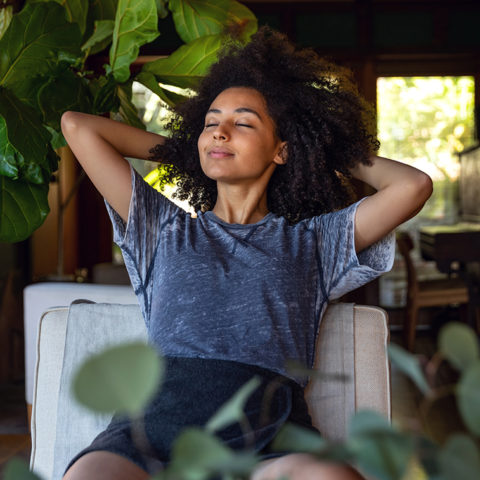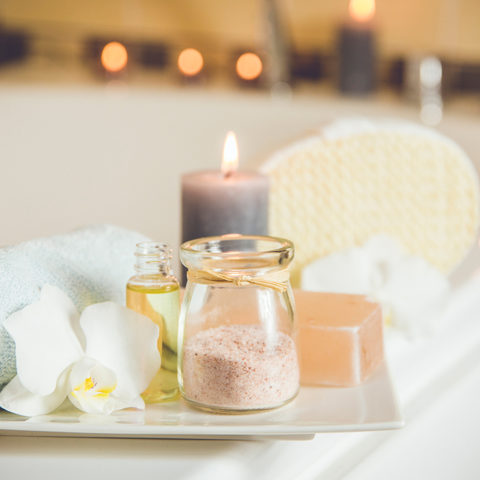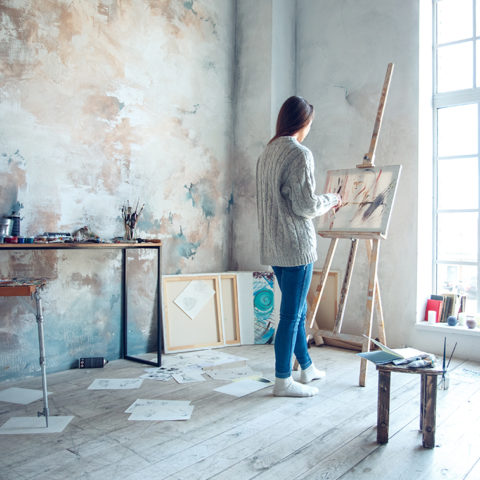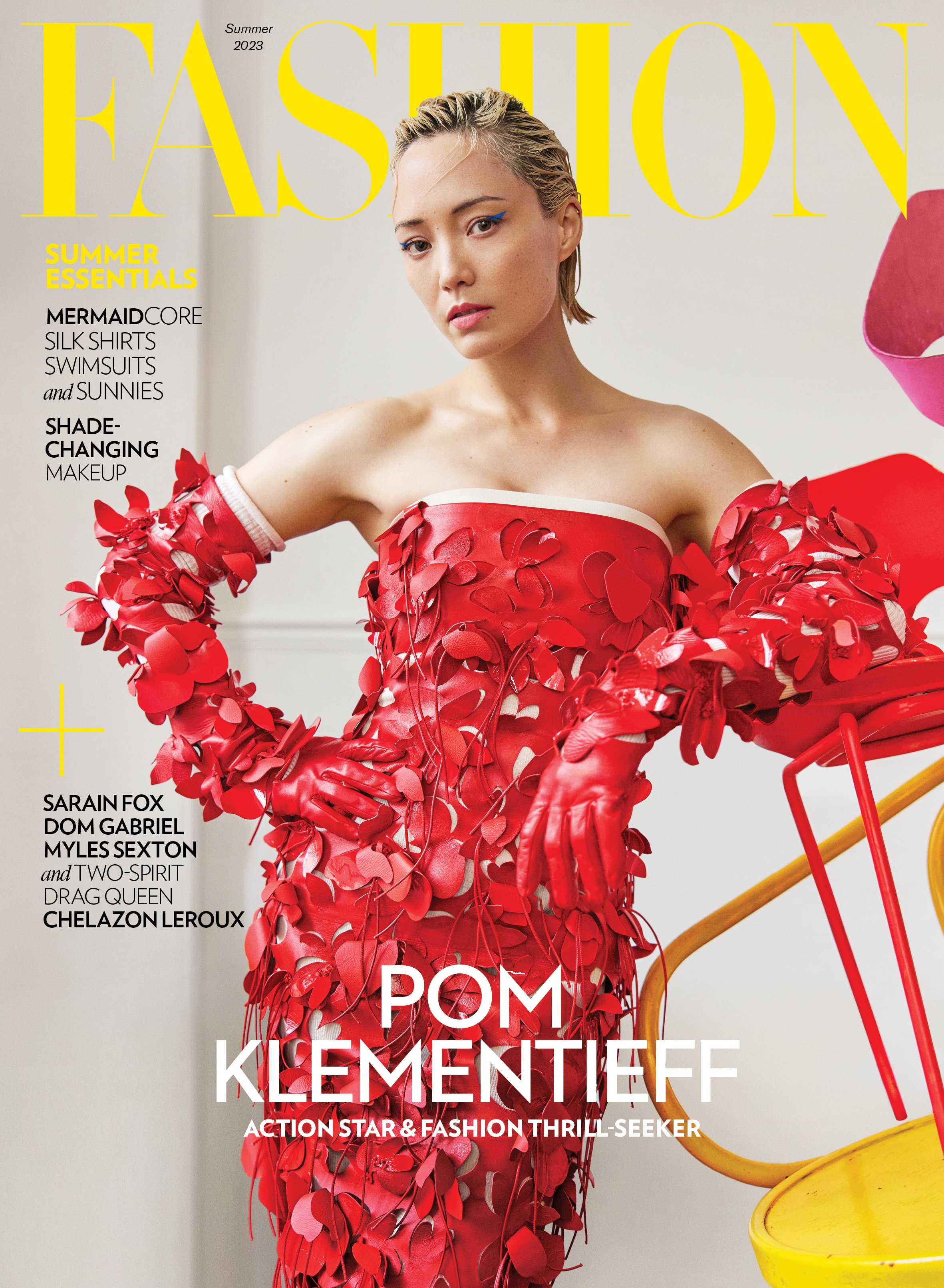An Artist’s Guide to Wellness
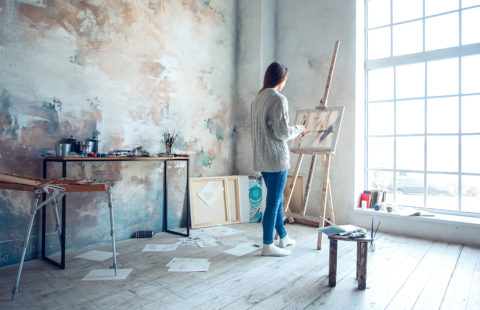
When it comes to self-care, face masks and rose petal-sprinkled baths can’t do all the heavy lifting. In order for our minds and souls to flourish, allowing space for creative practice is also essential. According to a Harvard Medical School article, creative activities have not only been proven to help alleviate stress and act as a mood booster, but they also have more long-term benefits including strengthened communication skills and arresting cognitive decline.
“When we’re using our creativity, we’re tapping into intuitive parts of our brains, so we can [access] different aspects of ourselves,” says Toronto-based art therapist Or Har-Gil. Ever notice how after dabbling in watercolours or dancing to your latest anthem, you feel clearer, calmer and more energized? That’s because creativity allows us to self-reflect, complete stress responses and direct our thoughts away from our troubles. So, if you’re ready to expand your self-care routine to make way for your inner artist, here are a few ways to get your creative juices flowing:
Keep it simple
As with all self-care practices, you want to start simple. First, pick an activity that you’ll realistically commit to. Whether you love to draw, paint, dance, or sing, make sure to dabble in hobbies that you’ll actually look forward to practicing. Then, as Har-Gil recommends, keep your materials out in the open and ready to go so that set-up time won’t deter you. Lastly, when first starting out, commit to bite-sized chunks of time so you can show up consistently. Don’t set yourself up for failure with over-the-top goals, either. Sure, it would be great to draw just like your favourite Instagram portrait artist, but we all know that ambitious pal who dumped her new running routine when her paces were less than speedy, right? Oftentimes, less is more.
Focus on the process, not the outcome
“It’s more about presence than perfection,” says Har-Gil. Instead of getting hung up on the end result, focus on the mental health benefits that come from the process. Creative practices are a space for catharsis, expression and releasing emotions. When we allow ourselves to just let it all out, we’re actually completing a trauma response, explains Har-Gil. “When we trap energy in our bodies and shove it down, it’s still there,” she adds. So, let yourself scribble outside the lines, throw paint on the canvas or dance like no one’s watching.
Make it social
If you’re a social butterfly, get artsy with your group of friends (virtually or in-person) or take your new hobby to social media. Hashtags such as #30dayartchallenge or #artjournalling are engaging, will keep you on task, and might even connect you with a virtual friend or two.
If paint nights are your thing, branch out a little and reach for Quatreau’s line of cannabis-infused sparkling waters while getting creative. This refreshing beverage brand is available in Canada from Canopy Growth, and features an array of flavours including Ginger and Lime, Blueberry and Açai, Cucumber and Mint, and Passionfruit and Guava.
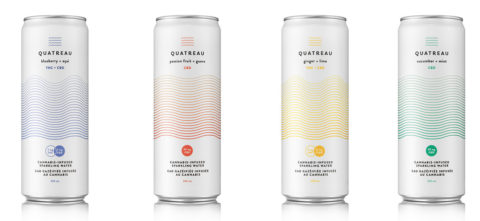
Take risks
Bob Ross certainly had it right when he said, “There are no mistakes, only happy accidents.” When we make bold moves on the page, throw an unlikely ingredient into the sauce or clash colours on the canvas, we’re actually proving to ourselves that it’s okay to take risks. “Our brain doesn’t know the difference between trying something new on the page versus in the real world,” says Har-Gil. So, the more you flex that muscle in your creative time, the braver you may be in negotiating your pay, taking that solo trip or asking out your crush.
Get really comfortable in your practice
Whether you’re opting for mindful colouring books, bold pastels, cooking up a storm or choreographing a dance, what’s important is that you sink into your artistic activity and get familiar. “The amount of insight and benefit you get from it will deepen the more comfortable you are,” says Har-Gil. In other words, the more at ease you are with that messy charcoal, the better you’ll be able to tap into what’s really going on under surface-level emotions.
This communication is intended for adults only and should not be shared with minors. There are risks associated with cannabis use. For information, search online “Health Canada – cannabis health effects.
*This product contains minimal amounts of THC.


